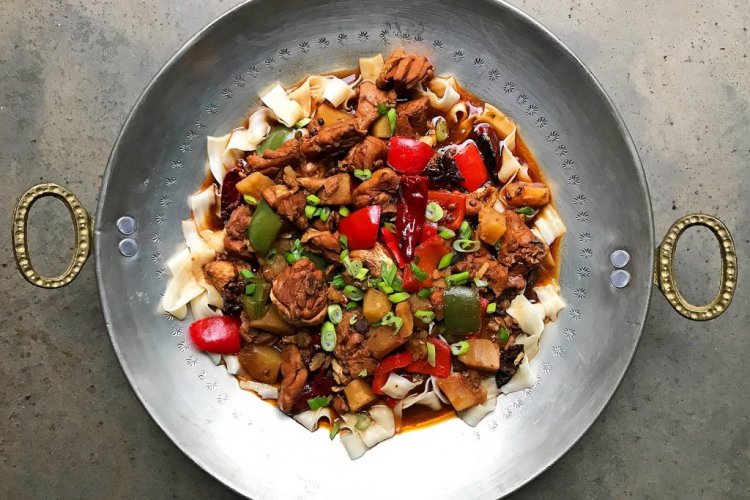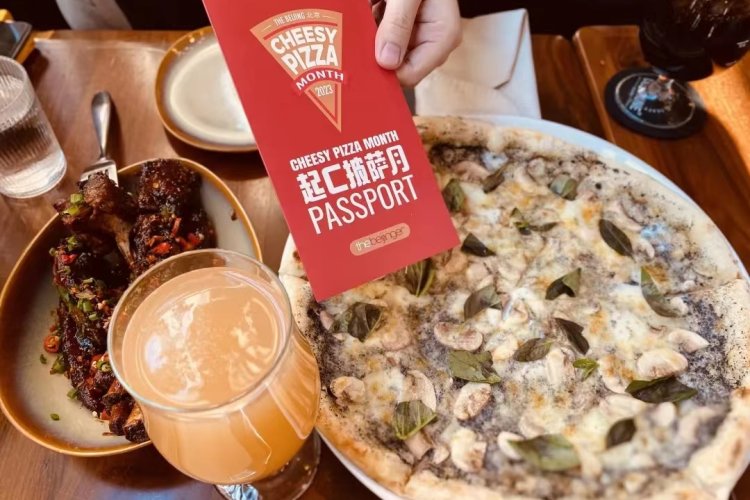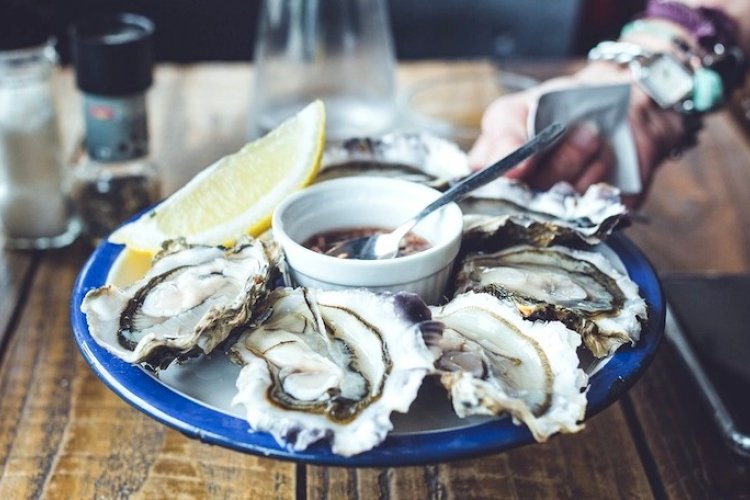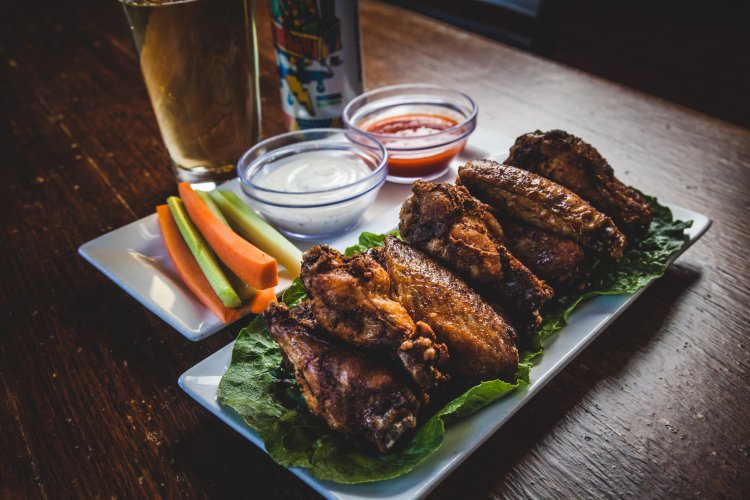The Real Da Dong: Beijing’s Roast Duck Maestro Branches Out
The name Da Dong might be synonymous with roast duck, but Da Dong is a man. A giant of a man at 193cm tall, hence the nickname da (“big”). Dong Zhenxiang is also widely regarded as one of China’s greatest chefs, with a vast repertoire of internationally influenced dishes that stretches far beyond Beijing kaoya.
“Understanding Chinese food is much more difficult than understanding Western food,” Da Dong assures me as we slurp cappuccinos in a white-upholstered private room at his Jinbao Place restaurant. Well, he should know. The Beijing-born chef has traveled far and wide in pursuit of what his menu proclaims as his “artistic conception of Chinese cuisine,” drawing upon diverse influences, from Sichuanese peasant dishes to the molecular cooking masterminded by French chemist Hervé This.
“I’m a Chinese chef, so my philosophy is to always focus on Chinese food,” he says, “but I draw upon other places and peoples, ingredients and techniques to make my food great.” Indeed, Shandong, Cantonese, Sichuan, Huaiyang and even classic French cooking are all part of the chef’s repertoire in a food career that’s spanned 30 years. The only son among nine children, Da Dong became a chef on the advice of his father, who told him, “With that job, you’ll never go hungry.” He wasn’t wrong. An estimated 800 ducks are roasted daily at Da Dong’s trio of restaurants. The branch we’re sitting in can handle 400 covers at a time and employs around 300 staff.
Perhaps more astonishingly, the famously tome-like menu boasts over 200 dishes, which begs the question: How can his chefs maintain the quality and consistency of a Western restaurant that has a menu one-tenth of the size? “Many European chefs visit our restaurant and cannot believe the scale of our kitchen,” Da Dong replies, impassively. “That’s why we’re the best – we can do many dishes well, not just a few.”
A bold claim, sure, but one backed by scores of awards that literally wallpaper the restaurant’s reception. One seemingly inconsequential plaque simply says “12th Place.” It was awarded last year by the Miele Guide – a new, Asia-wide restaurant survey compiled by votes from 100,000 diners across the continent. Most of the other top 20 Miele winners have celebrity-chef backed kitchens (three restaurants belong to French legend and culinary super-brand Joel Robuchon). In fact, Da Dong stands out for being perhaps the least “international” of the group. But would Da Dong deserve any Michelin stars if – or, more likely, when – the French guidebook covers mainland China? “Michelin is a bible of Western-style dishes. If it comes here, the inspectors should be experts in Chinese food and culture in order to judge,” Da Dong answers, a shade defensively. “Everybody knows you can’t judge a nationality and say which is better or which is worse, and the same applies to food.” I’m not so sure about that. I do, after all, come from the country that invented custard powder.
Da Dong has a tendency to flit between philosophical insight and cliché as he speaks, but that doesn’t stop me hanging on each softly spoken word. “Food is like language. You feel comfortable when you speak your mother tongue.” He elaborates with an example. “The sea cucumber is not easy for foreigners to accept, just like a bloody steak is problematic for the Chinese.” I second that. Especially as, moments later, I’m looking down at a sea cucumber on my plate.
“When you’re tasting it, please imagine it as caviar, truffles and the best steak in the world rolled into one,” Da Dong told me before he headed off to his next appointment, leaving me in the hands of his all-girl PR entourage. They tell me it’s the best: a thorny sea cucumber from Kato in Japan, dried and then rehydrated for several days, and finally cooked and served with braised spring onion and a zingy lemon sorbet. The first mouthful of spiky, viscous otherness slips and slides on the tongue – it’s satiny and spongy in equal measure with a lingering richness. Frankly, it’s delicious.
A seemingly unending procession of dishes follows: sea urchin sashimi dressed with lime; sliced geoduck clam served inside a globe of ice; a crystal-clear, intensely flavored soup of pricey matsutake mushrooms; a raw wafer of Kobe beef blowtorched tableside to a medium rare. As soon as I’m done with one course, another instantaneously appears. I’m starting to understand what an Aquitaine goose must go through in the noble pursuit of foie gras.
Not everything comes off. Despite sounding a clever dish on paper, noodles made from lobster meat are overawed by a cloyingly sweet zhajiang mian-style sauce. But my breathless banquet is unquestionably Chinese. Ingredients are largely local. Service is neat and tidy with absolutely no waiting on ceremony. And the food, Zen-like in its presentation, is at worst accomplished and at best, divine.
On this evidence, Da Dong really does come across as the quintessential modern Chinese restaurant. Not afraid to imitate or borrow, it prides itself on quantity as much as quality, and boasts a good deal of both. Whatever the Michelin man may think, the nightly queues here speak for themselves. And we didn’t even have the duck.






